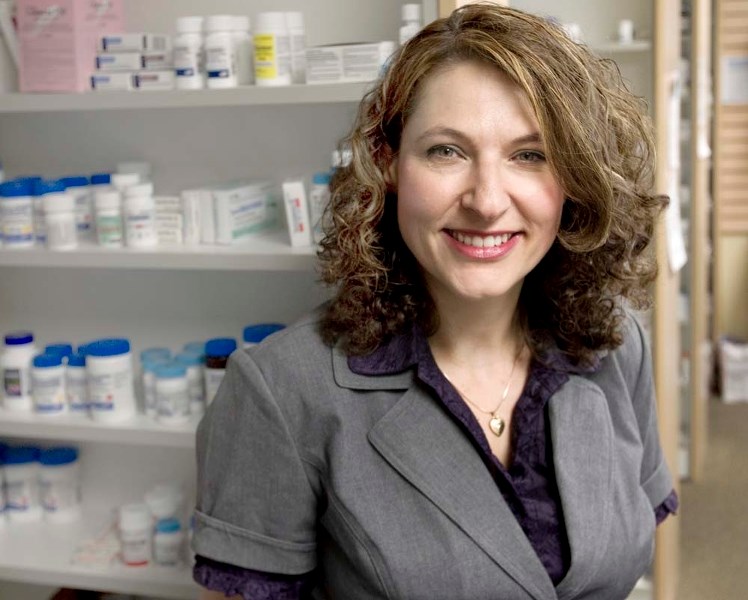The way pharmacists will bill for prescriptions and services will change as of April 1. A four-agreement between the Alberta Pharmacists' Association and the province was ratified Tuesday. It will see an increase to the compensation that pharmacists receive for services.
The way pharmacists will bill for prescriptions and services will change as of April 1.
A four-agreement between the Alberta Pharmacists' Association and the province was ratified Tuesday. It will see an increase to the compensation that pharmacists receive for services.
"This agreement means that Albertans can expect a whole lot more at no charge from your pharmacist," said Ali Damani, president of the Alberta Pharmacists' Association.
Dispensing fees to fill a prescription will be raised from $10.93 to $12.30.
There will also be a new compensation fee structure that will pay pharmacists between $20 to $100 for services including medication management for diabetics, counselling for smoking cessation and patient care plans.
Damani said the agreement will ensure four years of predictable funding, helping to compensate pharmacies for revenues lost due to cuts to generic drug prices. The province used to pay 35 per cent of the brand-name cost of drugs, but has now lowered it to 18 per cent.
Health Minister Fred Horne said Tuesday that while the province did reduce generic drug prices, "45 and 50 per cent of the savings that accrued to government plans was re-invested into new professional services for pharmacies."
"We're definitely excited about having more opportunity to charge professional fees but there is no way we are recouping what we lost – no way," remarked Lisa Devos, owner of Salvus Rxellence Professional Dispensary in St. Albert.
Devos admittedly is still trying to figure out how the new agreement will impact her business and her patients. One thing she has noticed is how the deal has altered how complex medical treatments are paid for.
"The old agreement had a time-based component where we could charge for the time it takes for compounding – making capsules or making complex gels for our pain patients," she explained.
Under the new agreement, pharmacists are to charge a fee without regard for time.
"They do recognize that there is an increased amount of workload associated with compounds but if the fee is $12, $6 is not going to cover my technician's time. It takes an hour to make capsules," said Devos.
She fears it will be the patients with complex needs and customized therapies who will suffer.
"We are being told to charge people cash, but that is pretty tough for some of the people who can't afford (their medications), who are on social assistance or on AISH."
Devos admits this aspect of the agreement will probably only affect 10 to 20 specialized compounding pharmacies in the province.
She is also concerned with what she calls "zero pharmacist consultation" during the ratification process.
Announced on Tuesday, the agreement also formalizes the Alberta Pharmacists' Association as a representative authority of the 3,900 pharmacists in Alberta through a new memorandum of understanding.
"This will provide a better approach in dealing with agreements, program changes and new initiatives," said Damani.
Devos isn't convinced.
"In this situation, I'm not sure that I've been represented well. I'm quite concerned by how this is going to affect us," she said.
Alfred Buenaventura, pharmacy manager and owner of Green Apple Pharmacy in Erin Ridge, said pharmacists did not receive adequate consultation when the changes were first announced last March.
He was one of dozens of pharmacists who rallied outside the Alberta legislature.
"We thought there wasn't a voice that was listened to on our side," he said.
Buenaventura explained that the stable funding will "encourage (pharmacists) to focus on more things other than the fee" but the incentive will be for pharmacies to provide those services as a way to recoup lost revenue.
Buenaventura said he hopes the outcome of the new deal will be positive, but he will have to wait and see.
